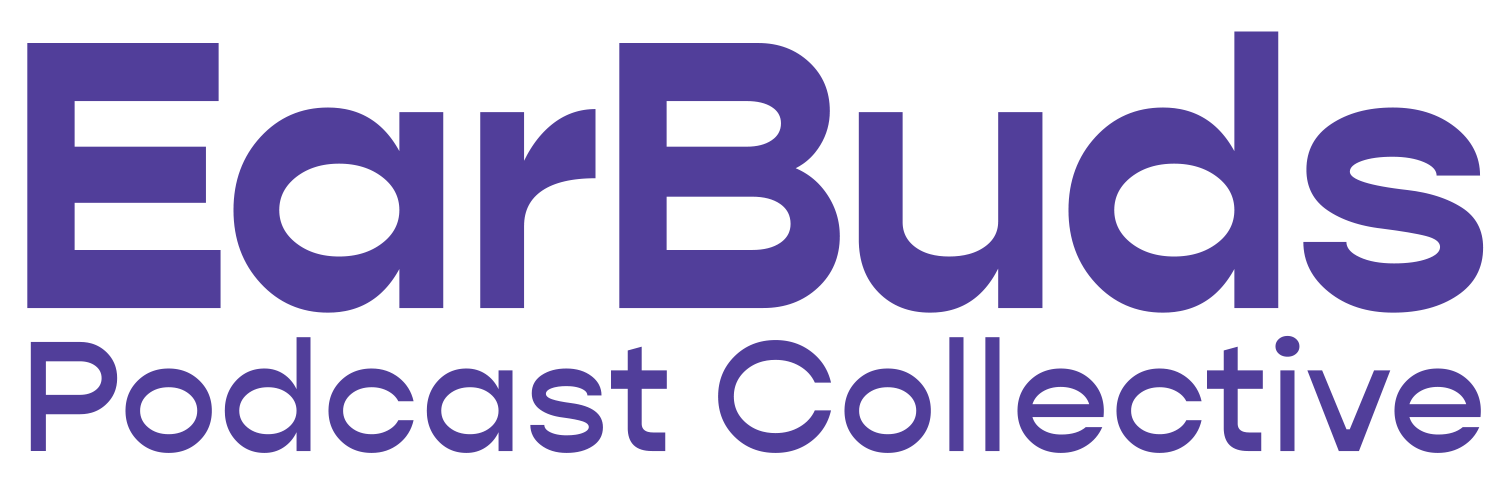A Conversation With the Host of New Podcast, “Luna Luna: Forgotten Fantasy,” Helen Molesworth
Interview by Andreea Coscai, EarBuds Newsletter & Community Coordinator
Luna Luna: Forgotten Fantasy - podcast cover
Luna Luna: Forgotten Fantasy, is a new podcast hosted by art historian Helen Molesworth. It unearths the lost history and revival of Luna Luna, the world’s first art amusement park. Featuring works by Lichtenstein, Basquiat, Haring, Dalí, Hockney, and more, this six-episode series explores the visionary spectacle that vanished for decades… until now.
Helen Molesworth is a Los Angeles–based writer and curator, known for her dynamic exhibitions and incisive art commentary. Formerly Chief Curator with MOCA, she is the host of David Zwirner's Dialogues podcast season 7, and recently curated Feedback at Jack Shainman’s The School. Her career spans major museum shows, academic and auction house roles, and award-winning writing, including the acclaimed podcast Death of an Artist.
I spoke to her for the EarBuds blog about her new show.
Helen Molesworth on New Podcast, “Luna Luna: Forgotten Fantasy”
Andreea Coscai: What drew you to the story of Luna Luna, and how did your background in art history shape the way you approached the podcast?
Helen Molesworth: Anthony Gonzalez called me during the pandemic and asked, “Would you come down and check this thing out that I'm working on?” I drove down, so the first time I saw the work was in a warehouse. It was all still casual then, but the podcast came together for me the day Anthony reached out and said that Andre, the creator of Luna Luna, had done some shenanigans with a Basquiat.
I knew at that point we had a complicated character, and I thought with my ethical hat, that’s really a shame, but then with just my storytelling hat on, I thought complicated characters are much more interesting than the do-gooders we all imagine ourselves to be. There’s a dark side, there is the taboo. And all of a sudden, Andre Heller, who had a lot of quirky eccentricities, just became a much more multifaceted, complicated main character of the story.
AC: How did you think about tone and storytelling as you pieced together the narrative?
HM: I think what I gravitate towards in the podcast form is the capacity or role of the host to take on a narrative, and it feels like that moment when you're at a great dinner party and someone tells a story and six to eight other people around the table are locked in. When it's personal, yet it opens out onto larger cultural questions that we're all grappling with in some way or another.
Helen Molesworth
AC: What surprised you most during the creative process, whether in the archival research or interviews with people involved in the original project?
HM: What surprised me the most, even though I went in knowing that Andre was ethically complicated, was how seduced I was…how hard it was to maintain any objectivity and to not be immersed in the fantasy that Andre creates in his own world and beyond.
So he got me. Now I could understand how he pulled this off, because whatever his superpower is, it is bound up in his capacity for seduction.
AC: You have explored the art world’s power structures before in Death of an Artist. What does the Luna Luna story reveal to you about who gets to preserve culture and who gets written out of it?
HM: What I can say Death of an Artist and Luna Luna share is that they both interrogate this idea that because art is powerful, it is taken up by powerful people. An object being powerful is one thing. Powerful people, that is something else. That is where it gets complicated. Power, we can't live without it, but we don't live with it very well.
And so, a shared thread that is present both in Ana Mendieta's work, but also in a lot of work of the Luna Luna artists, and I think in me, is that I just don't believe that art should be intellectually inaccessible to people. I truly believe that we're all human beings trying to communicate with each other, and while it might need a translator at times, I, Helen Molesworth, should be able to explain it to you in language you can understand and that you can ask me a question back.
AC: Can you share some of the other podcasts you listen to that may or may not have inspired your work?
HM: I loved this multi-part podcast about this young woman, Maria García, for WBUR out of Boston. And she grew up in South Texas listening to Selena and made a podcast about Selena. It's amazing, Anything For Selena.
And she really put herself in it, like her search, her desire, but it is also totally about Selena. I loved it because I loved her [Maria García] voice, her honesty, and I love that she included her process. It did everything I wanted a podcast to do. It was like, let me show you my curiosity and my love, and let me make you a fan.
Mother Country Radicals, also honorable mention.
Thanks for your time, Helen! Listen to Luna Luna: Forgotten Fantasy here.


